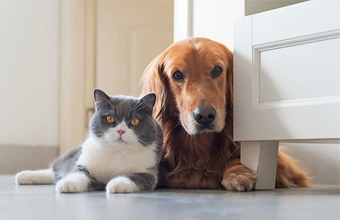Why is pet liability coverage important for renters?
Pet insurance is a type of liability insurance that helps pet owners financially if their pet causes damage or injures someone. Pet liability insurance covers expenses related to the pet owner’s legal responsibility for the animal, such as medical bills for the injured person and property damage. pet insurance does not cover routine pet care, such as annual vaccinations or teeth cleanings.
Some landlords require pet insurance as part of the lease agreement. Even if it’s not required, pet insurance can give pet owners peace of mind knowing they are financially protected in case their pet damages someone or something.
For example, let’s say a renter’s dog bites their neighbor. The neighbor may need medical treatment and could also sue the renter for damages. If the renter has pet liability coverage, their insurance company would help pay for the medical bills and any legal fees associated with the lawsuit.
Pet liability coverage is important for renters because it can help them avoid financial ruin if their pet causes damage or injures someone. It’s also relatively affordable, with most plans costing less than $20 per month. When considering whether to get pet insurance, renters should check with their landlord to see if it’s required and compare different pet insurance policies to find one that meets their needs and budget.
How can you get pet liability coverage on a renters insurance policy?

Many renters are unaware that they can get pet liability insurance through their renters insurance policy. Pet liability insurance provides coverage for damages caused by your pet, such as if your dog bites someone. In order to get pet liability coverage, you will need to add it to your renters insurance policy. You can usually do this by contacting your insurance company and asking them to add it on. Once you have pet liability coverage, you will be protected in the event that your pet causes damage to someone else’s property or injures another person.
As a pet owner, you know that your furry friend is part of the family. But did you know that your renters insurance policy may not cover damages caused by your pet? That’s where pet liability insurance comes in.
Most renters insurance policies have some form of liability coverage, but this is usually limited to $100,000 or less. If you’re concerned about your pet causing damage to your rental property or injuring someone, you may want to purchase a separate renters insurance policy that includes pet liability coverage.
Pet liability coverage typically costs between $25 and $50 per year, depending on the size and type of pet. While this may seem like an unnecessary expense, it could save you thousands of dollars in the long run if your pet should happen to cause any damage. So if you’re a responsible pet owner who wants to be prepared for anything, consider getting pet liability coverage on your renters insurance policy.
10 benefits of having pet liability coverage on your renters insurance policy
1. Coverage for your pet if it injures someone – If your pet injures someone, pet liability coverage on your renters insurance policy can help pay for the victim’s medical bills, as well as any legal fees you may incur.
2. Protection against property damage caused by your pet – If your pet damages someone else’s property, pet liability coverage can help pay for the repairs.
3. Peace of mind – Knowing that you have protection in case your pet causes an accident can give you peace of mind.
4. Avoid out-of-pocket expenses – If your pet causes an accident, you may be responsible for paying the resulting medical and repair bills yourself if you don’t have pet liability coverage.
5. Lower your risk of being sued – If your pet injures someone and you’re found liable, you may be sued for damages. Having pet liability coverage can help protect you financially if this happens.
6. Helps you comply with landlord rules – Some landlords require their tenants to have pet liability coverage.
7. May be required if you have a dangerous breed of dog – If you own a dog that is considered to be a dangerous breed, such as a pit bull or Rottweiler, you may be required to carry pet liability coverage.
8. Coverage for boarding and grooming accidents – If your pet is injured while boarding or grooming, pet liability coverage can help pay for the resulting medical bills.
9. Helps you keep your pet – If your pet causes an accident and you’re found liable, you may be forced to give up your pet. Having pet liability coverage can help you keep your pet in this situation.
10. Gives you peace of mind – Knowing that you have protection in case your pet causes an accident can give you peace of mind.
What are some things to consider when getting pet liability coverage on your renters insurance policy?
As a pet owner, it’s important to make sure you’re covered in case your pet causes damage to someone else’s property or injures someone. Here are 10 things to consider when getting pet liability coverage on your renters insurance policy:
1. Does the policy cover all of my pets?
2. What is the maximum amount of coverage for each pet?
3. How much does the policy cover for property damage?
4. How much does the policy cover for bodily injury?
5. Does the policy have any exclusions for certain breeds of dogs?
6. Is there a deductible that I would have to pay if my pet caused damage?
7. What is the process for filing a claim if my pet causes damage?
8. How long does the coverage last?
9. What happens if I move to a new rental property? Does the coverage transfer?
10. Are there any other restrictions or requirements that I should be aware of?
If you’re considering getting pet liability coverage on your renters insurance policy, be sure to ask your agent about all of these factors to ensure that you’re getting the best coverage for your needs.
Is pet liability coverage worth the cost?
Pet liability coverage is insurance that helps to protect pet owners in the event that their animal causes damage or injury to another person. While the cost of this coverage can vary depending on the size and type of pet, it is generally fairly affordable. However, some pet owners wonder whether the cost is worth it.
There is no easy answer to this question, as each situation is unique. For example, a dog who has a history of biting people may be more likely to cause serious injury than a dog who has never bitten anyone before. As such, the owner of the first dog may feel that pet liability coverage is essential, while the owner of the second dog may feel that it is not necessary. Ultimately, the decision of whether or not to purchase pet liability coverage depends on the individual pet owner’s assessment of their own animal’s risk factors.
Depending factors for pet liability coverage
There are a few things you should consider when determining how much pet liability coverage you need.
The first is the type of pet you have. Some breeds are more prone to biting than others, so if you have a dog with a history of aggression, you may want to consider a higher level of coverage.
The second is your lifestyle. If you frequently have visitors over or take your dog to the park, there’s a greater chance that someone could be injured by your pet.
Finally, consider the value of your assets. If you own a home or other property, you’ll want to make sure that your pet liability coverage is high enough to cover any potential damages. By taking all of these factors into account, you can make sure that you’re adequately protected in the event that your pet causes an injury.
How much does pet liability coverage cost?
Pet liability coverage is a type of insurance that helps to protect pet owners from the financial implications of their pet injuring someone or damaging property. Pet coverage typically has a liability coverage limit of $100,000 or $300,000, and it can cost anywhere from $25 to $75 per year. Pet owners should consider purchasing pet liability coverage if they have a dog or other pet that is likely to cause damage, as it can help to mitigate the cost of any damages that occur.
Dog liability insurance

Dog liability insurance is a type of insurance that covers dog owners in the event that their dog injures someone or damages property. Dog bites are the most common type of claim filed under dog liability insurance policies, but other types of claims can include damage caused by a dog knocking over someone’s child or destroying property.
Dog liability insurance policies typically cover both medical expenses and damages to property, up to a certain limit. Many homeowners’ insurance policies exclude coverage for dog-related incidents, so it’s important for dog owners to purchase a separate policy if they want to be fully protected. Dog liability insurance can give peace of mind to dog owners and help ensure that they’re able to take responsibility for their dog’s actions.
Purchase renters insurance for certain dog breeds
Some dog breeds are more likely to cause damage than others, and landlords often require renters insurance for these breeds. The most common breeds that require insurance are pit bulls, Rottweilers, German shepherds, and Doberman pinschers.
These breeds are strong and athletic, and they can cause a lot of damage if they’re not properly trained. In addition, they’re more likely to be involved in dog fights, which can result in property damage and injuries to people. As a result, it’s important to make sure you have renters insurance if you own one of these breeds. Otherwise, you could be held liable for any damage that your dog causes.
What is the best way to get pet liability coverage on a renters insurance policy?
One way to get pet liability coverage on a renters insurance policy is to contact your insurance company and ask if they offer such a thing. Some companies do offer this type of coverage, but it is not always included in standard renters insurance policies. Another way to get pet liability coverage is to purchase a standalone policy from a pet insurance company. This type of policy will typically cover the cost of any damages your pet might cause, as well as any medical expenses associated with injuries sustained by your pet.
Finally, you could also consider getting a Riders Insurance Policy, which is an add-on to your existing renters insurance policy that provides additional coverage for things like pets and jewelry. While each of these options has its own merits, the best way to get pet liability coverage on a renters insurance policy is ultimately going to depend on your specific needs and circumstances.
Is there any insurance information institute?

Yes, the Insurance Information Institute (III) is a not-for-profit organization that provides unbiased information and research on insurance topics to consumers, educators and policymakers. The III also engages in public education campaigns on a variety of insurance topics, such as natural disasters, distracted driving and identity theft. In addition, the III provides support to insurance consumers who have questions or need assistance with their policies. The III is headquartered in New York City and has regional offices across the United States.
Major insurance companies
The five largest insurance companies in the United States are State Farm, Geico, Progressive, Allstate, and USAA. These companies control nearly 60% of the total insurance market in the United States. Each of these companies has a different business model, but they all share one common goal: to make money for their shareholders. State Farm and Geico are both direct insurers, meaning that they sell their products directly to customers without the use of agents or brokers. Progressive and Allstate are both indirect insurers, meaning that they sell their products through intermediaries such as agents or brokers. USAA is a mutual insurer, meaning that it is owned by its policyholders.
All of these companies are publicly traded on the stock exchange, and they all compete for market share. In order to compete, each company must offer a product that is competitively priced and provides value to customers. Each company must also carefully manage its expenses in order to maximize profits. The five largest insurance companies in the United States are all extremely profitable, but they are also all very different.
Buy renters insurance from a licensed insurance agent
Having renters insurance is important because it will protect your belongings in case of an emergency, like a fire or break-in. It’s also one of the requirements of your lease agreement. When looking for a policy, be sure to purchase it from a licensed insurance agent. This will ensure that you’re getting the coverage you need at a fair price. You can usually get a discount on your premium if you bundle your renters insurance with your car insurance. Be sure to ask about this when you’re shopping around for a policy.
How is property damage liability related to pet liability coverage in renters insurance?
In the event that your pet causes damage to someone else’s property, your renters insurance policy will typically provide coverage for the resulting repairs or replacement costs. This type of coverage is usually referred to as property damage liability. In order to be eligible for this type of coverage, you will typically need to have pet liability coverage included in your policy. Pet liability coverage is designed to protect you in the event that your pet causes harm to someone else, and it can help to cover the resulting medical expenses or property damage costs. Because of this, it is a good idea to make sure that you have both property damage liability and pet liability coverage included in your renters insurance policy.
What typical premiums insurance products do you get in pet liability coverage?
There are a variety of insurance products available to pet owners, and each one offers different coverage. The most common type of pet insurance is liability coverage, which helps to protect your finances in the event that your pet causes damage to someone else’s property. This type of coverage typically has a limit of $500,000 or more, and it may also cover legal costs if you are sued.
Other types of pet insurance include medical coverage, which helps to pay for your pet’s veterinary bills, and comprehensive coverage, which covers a wide range of expenses. Ultimately, the best type of pet insurance for you will depend on your needs and budget. However, all pet owners should consider purchasing at least some form of liability coverage to protect themselves from financial ruin in the event that their pet causes damage to someone else’s property.
What is the umbrella policy for pet liability coverage?
For pet parents, nothing is more important than the safety and well-being of their four-legged friend. And while most pet insurance policies cover basic needs like routine check-ups and vaccinations, what happens if your pet causes property damage or injures someone? That’s where the umbrella policy for pet liability coverage comes in. This type of policy provides financial protection in the event that your pet causes damage to someone else’s property or hurts someone. It can also help to cover legal expenses if you are sued as a result of your pet’s actions. So whether you have a rambunctious puppy or a more mature pet, it’s important to consider an umbrella policy for pet liability coverage as part of your overall pet insurance plan.
What are other policy types for pet liability coverage?
In addition to traditional homeowners and renters insurance policies, there are a few other options for pet liability coverage.
One is a standalone policy, which can be purchased from most major insurers. This type of policy generally covers the same types of events as standard homeowners or renters policy, but with higher limits for animal-related damages. Another option is to add an endorsement to your existing homeowners or renters policy. This is usually a less expensive option than buying a standalone policy, but it will still provide some financial protection in the event that your pet causes damage.
Finally, some insurers offer special pet liability policies for dog owners. These policies typically have higher limits than standard homeowners or renters policies and may also cover certain breeds of dogs that are considered high-risk. Regardless of which type of policy you choose, pet liability coverage can help give you peace of mind in knowing that you are financially protected in the event that your pet causes damage.
Who are the renters insurance providers for pet liability coverage?
Pet liability insurance is a type of renter’s insurance that helps to protect you from financial damages if your pet causes injury to someone else. While most renter’s insurance policies exclude liability coverage for pets, there are a few companies that offer this type of coverage. The best way to find out if a particular company offers pet insurance is to contact them directly and ask. Some of the companies that offer pet liability coverage include Nationwide, Geico, USAA, and State Farm. If you’re unsure whether or not you need this type of coverage, it’s always best to speak with your agent or landlord to get their recommendation.
What is standard renters insurance policy?
A standard renters insurance policy usually does not cover pet liability, meaning that if your pet causes injury to someone, you may be held responsible. Many landlords require pet insurance as a condition of renting, and some homeowner’s insurance policies include pet liability coverage. You can also purchase a standalone pet liability policy to protect yourself from financial damages caused by your pet. These policies typically cover the medical expenses of anyone injured by your pet, as well as any property damage caused by your pet. If you rent your home and have pets, it’s important to understand your liability risks and make sure you have the coverage you need to protect yourself financially
Bottom Line
We hope this blog has helped you understand the importance of pet liability coverage and given you a few tips on how to get it. Remember, it is always important to read the fine print when shopping for insurance policies and to ask your agent any questions you have about coverage. Be sure to stay tuned for more helpful blogs here. In the meantime, please feel free to explore our website or reach out to us if you have any questions.











